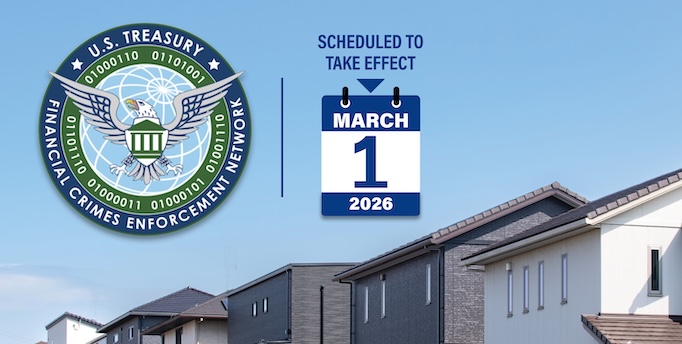Since January 2016, as part of its continuing efforts to safeguard U.S. financial systems from money laundering and other illicit activity, the Financial Crimes Enforcement Network (FinCEN) has issued Residential Real Estate Geographic Targeting Orders (GTOs) requiring title insurance companies to report information about non-financed purchases of residential property by legal entities in specific locations.
Initially, GTOs were limited to residential properties over $1 million located in Manhattan, New York and Miami-Dade County, Florida. Over time, the GTOs have been progressively refined and expanded. As of April 2025, they cover certain counties and major U.S. metropolitan areas in California, Colorado, Connecticut, Florida, Hawaii, Illinois, Maryland, Massachusetts, Nevada, New York, Texas, Washington, Virginia and the District of Columbia, with a reportable purchase threshold of $300,000 or more ($50,000 or more in the city and county of Baltimore).
Under FinCEN’s final rule, set to go into effect on March 1, 2026, the GTOs will be replaced with a nationwide reporting framework. The new rule will have no geographic limitations and no purchase price thresholds. It will require title companies to collect and report significant amounts of private information for residential property transfers to legal entities and trusts, and offers limited transactional exemptions. The new rule marks a significant shift and introduces a new landscape for many title industry professionals across the nation.
Although the new rule is not set to go into effect until March 1, 2026, title industry professionals can benefit from taking a proactive approach to compliance. Below is an overview of FinCEN’s final rule and five steps you can take now to help your business prepare.
An Overview of FinCEN’s Final Rule
• Covered transactions: The rule covers purchases of residential real estate where the buyer is a legal entity or trust using non-institutional lending, cash, private or seller financing, or financing secured by collateral other than the property. Under the rule, a non-institutional lender is any lender that is not subject to Anti-Money Laundering and Suspicious Activity Report obligations.
• Reportable properties: Residential 1-4 family properties, vacant land intended for 1-4 family residential construction, co-ops, condominiums, mixed-use and apartment buildings.
• Territories: The final rule applies to qualifying transactions anywhere in the U.S., including Washington, D.C., Puerto Rico and Native American lands.
• Exemptions: Some transfers may be exempt, including but not limited to, transfer of an easement, a divorce or dissolution of marriage or civil union, a bankruptcy estate, or a transfer supervised by a U.S. court. For a more complete list of exemptions, see the final rule.
• Reportable information: FinCEN has identified data fields in its form documentation, including information on the property; transferee and transferor and certain beneficial owners; and source of funds, payments and reporting persons.
• Reporting persons: Unless specifically designated otherwise by a written designation agreement for a particular transaction, the rule sets out a hierarchical list of individuals tasked with reporting, headed by the closing or settlement agent on the closing or settlement statement.
Steps to Prepare for the new FinCEN Residential Rule
1. Understand the Rule: Familiarize yourself with the specific requirements and reporting obligations outlined in the FinCEN rule, fact sheet and FAQs. To learn more, click here.
2. Collaborate with Legal and Compliance Teams: FinCEN requirements can be challenging to interpret. Also, transactions involving trusts and legal entities may require specialized knowledge. Working with counsel can help to ensure that title industry professionals fully understand their obligations. Doing so can help mitigate the risk of non-compliance, which could result in significant penalties and legal repercussions.
3. Monitor and Audit: Establish a system for ongoing monitoring and auditing to ensure continuous compliance with the rule. Stay informed by checking FinCEN's news page.
4. Implement Technology Solutions: Utilize technology that can help streamline the reporting process and ensure accurate data collection and submission.
5. Training and Education: Conduct training sessions for staff to ensure they understand the new reporting procedures and compliance standards. Revise internal policies and procedures to align with the new rule, including documentation and reporting protocols.
Outlook
Industry leaders, including the American Land Title Association (ALTA) and state land title associations, are actively supporting title industry professionals by providing extensive resources, such as educational materials, training programs and practical guidance. These efforts are designed to help the industry understand and implement the new requirements effectively. By leveraging these resources, title industry professionals will be well-prepared to comply with the new regulations and minimize any potential disruptions to their operations.




